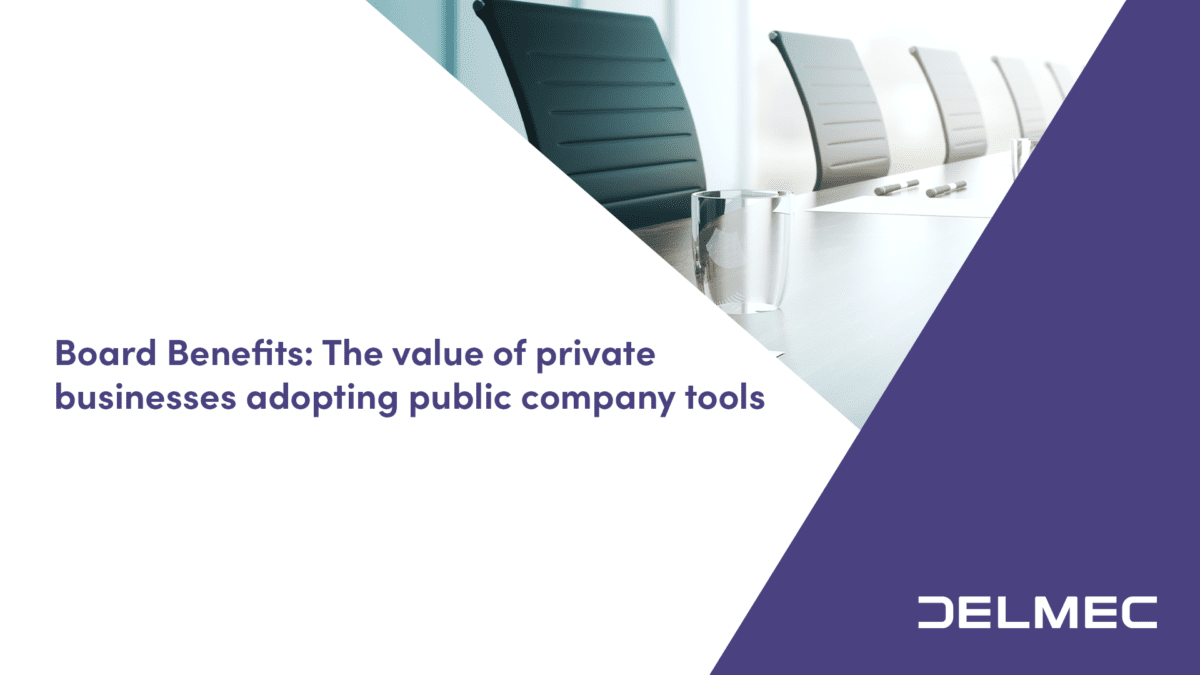When three Delaney brothers came together in 1975 to found the company that would become Delmec, they were focused on building a strong local business. At that stage, before the era of modern telecommunications, they probably wouldn’t have dreamed of operating across three continents.
And yet here we are, almost fifty years later, with offices all around the world. While our HQ remains in Carlow, Ireland, we now have teams in the Democratic Republic of Congo, Tanzania, South Africa, Poland, Pakistan, and the Philippines.
This has led to an interesting situation, in which we effectively straddle two worlds: we’re a family-based private business that operates on the scale of a global public company.
Private company structure
Many entrepreneurs dream about ‘going public’ with the company they’ve built — we’ve all seen movie characters ring the bell on the New York Stock Exchange trading floor. But keeping a company private is an increasingly popular option: in the US, the number of publicly listed companies dropped by 52% from the late 1990s to 2016.
Why? Well, control is usually a big reason why companies choose to stay private. Over the years, Delmec has faced many different challenges, from the economically bleak 1980s, to the global recession of 2008, all the way to the devastating pandemic of recent years.
We’ve weathered these storms by staying true to our core values: bravery, proactivity, teamwork, and smart, solution-based thinking. In every situation, our executive leadership makes the best decisions possible based on our commitment to our colleagues, our clients, and our customers — not external shareholders, equity-fund owners, or the vagaries of a tumultuous stock market. That sort of self-determination is invaluable to us, and not something we’re interested in giving up.
Public company tools
That said, there are benefits that come with taking a company public. Chief among these is the injection of capital funds, of course, which allows for greater expansion, R&D, and myriad other progressions. Preparing to issue a prospectus for going public can be a challenging and costly process, but it’s also an opportunity to thoroughly interrogate what’s working within a company — and what isn’t. The market tends to have a quick and sometimes devastating reaction in the case of the latter, as seen in some well-known failed IPOs of recent years.
There is a complex framework of rules and regulations surrounding public companies, designed to protect the ordinary shareholder. This extra layer of oversight, while expensive to manage, usually results in a more tightly-organised structure to the business. Most legal systems also require public companies to appoint an independent board of directors. This can lead to friction, of course — not every outside board member will have the same understanding of the business as its founder, or key executives — but it also brings ‘fresh eyes’ and varied experiences to the table.
The best of both worlds
Here at Delmec, with our engineering backgrounds, we’re always looking to shape unique solutions to common challenges. That’s the kind of thinking that led to us choosing a hybrid approach to our company’s leadership: cherry-picking the best elements of a public and private company to ensure our continued success.
More than three years ago, we designed a multi-layered board structure based on groups of shareholders, management teams and appointed employees. Board members have varying responsibilities, from setting high level company OKRs to implementing strategy and tracking individual KPIs. We put together a charter that includes a list of requirements, and a framework for our quarterly meetings.
One of the most important decisions we made is to create a board of advisors, which includes industry stalwarts who bring exceptional knowledge, skills and expertise to Delmec, as well as key networking opportunities and guidance on governance and strategy. Above all, they lend valuable new perspectives — those ‘fresh eyes’ that usually benefit public companies.
Scaling new heights
Delmec is growing faster than ever before, with new opportunities emerging within the market for alternative networks. Taking this ‘best of both worlds’ approach allows us to continue to offer the uniquely personal service that comes with a private, tightly-knit organisation, while scaling at a level usually seen in public companies.
From three Irish brothers to a global workforce comprising more than 20 nationalities, Delmec has always believed that collaboration, partnership, and synergy is what drives success. Now, as we welcome to our boards some of the brightest and best minds in the industry, the sky’s the limit.

